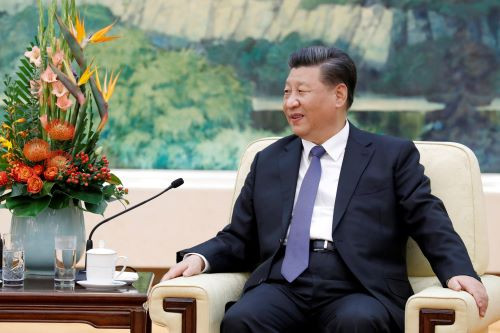Chinese President Xi Jinping and Malaysian Prime Minister Anwar Ibrahim signed 31 cooperation agreements during Xi's three-day state visit to Malaysia, signaling a sharp pivot toward deeper bilateral ties as both nations seek alternatives to U.S.-led trade frameworks amid rising tariff pressures from the Trump administration.
The visit, part of Xi's broader Southeast Asia tour that includes Vietnam and Cambodia, marks the latest attempt by Beijing to consolidate regional alliances in response to escalating tensions with Washington. This visit marks a "new golden era" of China-Malaysia relations, Xi said, following talks in Putrajaya with Anwar. The two leaders pledged to deepen cooperation in sectors including artificial intelligence, high-tech manufacturing, energy, and education.
Malaysian Communications Minister Fahmi Fadzil called the summit "among the most significant achievements in our history," noting that the 31 memoranda of understanding signed span technology, agriculture, infrastructure, and investment. In a joint statement, both countries emphasized building a "high-level strategic China-Malaysia community with a shared future."
Trade relations between China and Malaysia have grown exponentially, reaching $212 billion in 2024 according to Chinese state media, making China Malaysia's largest trading partner for the 16th consecutive year. But this growing alignment comes at a time of deepening strain with the United States.
The Trump administration recently imposed a 24% tariff on Malaysian goods, though it granted a 90-day pause for renegotiation. U.S. tariffs on Chinese exports remain in place, and both countries have accused each other of escalating unilateral trade restrictions.
"Both sides will jointly promote universally beneficial and inclusive economic globalization, advance trade and investment facilitation, and reject the unilateral trade restrictive measures including arbitrary tariffs hikes that are inconsistent with the WTO rules," the China-Malaysia statement read.
While strengthening economic ties, the leaders also addressed geopolitical friction. The two countries reaffirmed their commitment to peacefully resolving South China Sea disputes and supported a code of conduct between China and ASEAN nations, aimed for completion next year. The joint statement urged continued talks, acknowledging slow progress since negotiations began in earnest only after 15 years of delays.
Energy exploration in the disputed waters has fueled recent confrontations, particularly around Petronas-operated projects off Malaysia's coast. Anwar reiterated Malaysia's sovereignty over its exclusive economic zone and affirmed that drilling activities would continue despite Chinese objections.
China claims nearly all of the South China Sea, including portions within Malaysia's exclusive economic zone, though a 2016 international tribunal ruled China's claims to have no legal basis. China has rejected that ruling and continues to deploy coast guard and naval assets in disputed waters.
Xi's visit was also used to spotlight China's position on global conflicts, with the joint statement asserting that Gaza is "an inalienable part of the territory of Palestine," and calling for the full implementation of a ceasefire.
Malaysia, which currently chairs ASEAN, reiterated its support for the One China policy and declined to support any call for Taiwanese independence.
Xi concluded his Malaysia trip Thursday and departed for Cambodia, where he is expected to announce further strategic cooperation. Chinese state media highlighted Cambodia as a vital node in China's Belt and Road Initiative and described the China-Cambodia relationship as built on "mutual benefit and equality."






